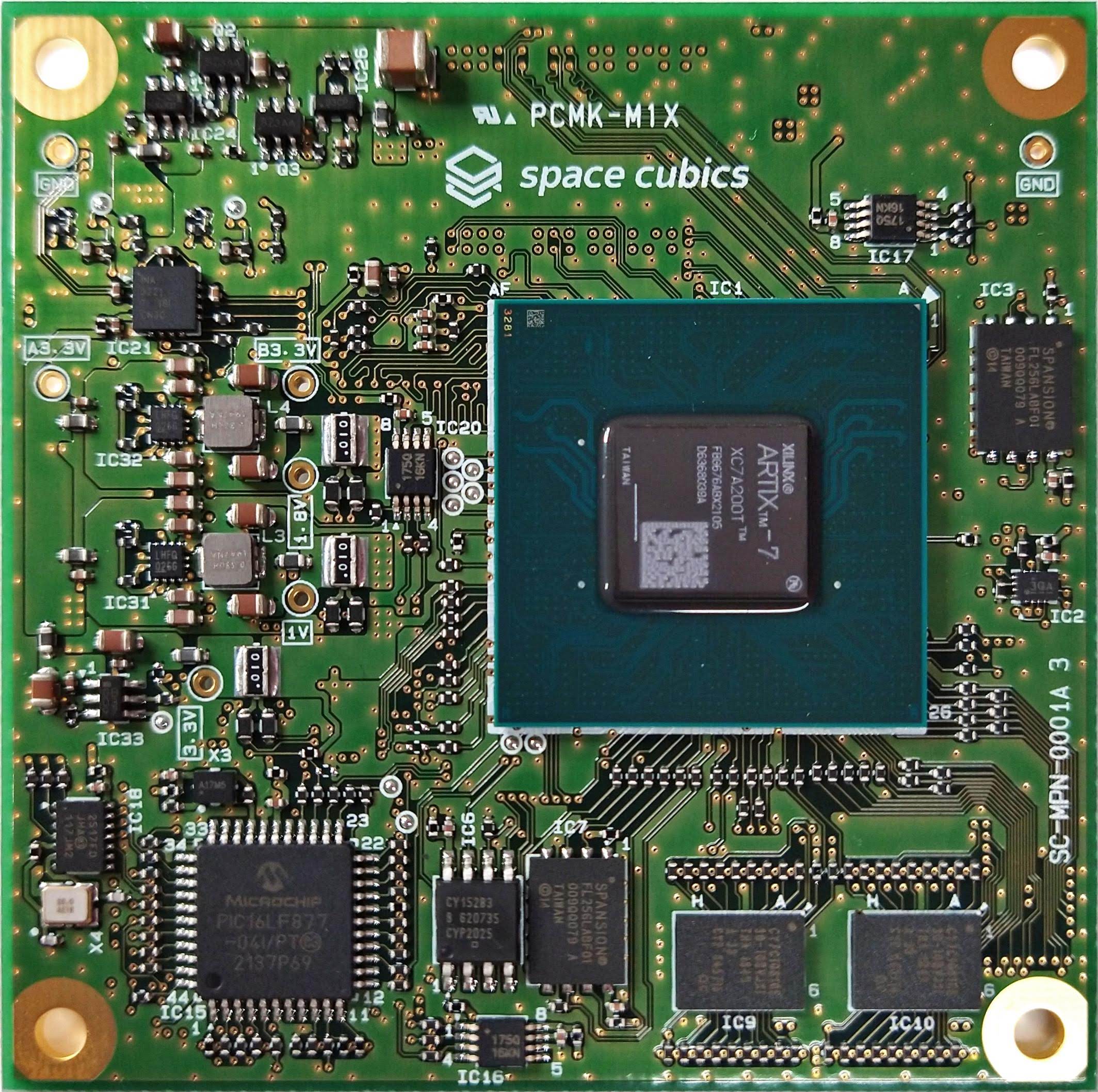Space Cubics OBC module 1
Overview
Space Cubics 1 OBC module 1 is a single board computer for spacecraft, especially for 3U CubeSats. The board is based on Xilinx Artix-7 FPGA and implements ARM Cortex M3 as the main CPU.

Fig. 159 Space Cubics OBC module 1
It is designed to survive in the severe space environment, extreme temperature, vacuum, and space radiation.
As the name suggests, the board form factor is a module and requires a base I/O board connected at CON1, a board-to-board connector. This modularity allows CubeSat designers the freedom to connect and expand the capability required for their mission.
Hardware
Supported Features
The Space Cubics OBC module 1 provides the following hardware features:
Interface |
Controller |
Driver/Component |
|---|---|---|
NVIC |
on-chip |
nested vector interrupt controller |
SYSTICK |
on-chip |
systick |
UART |
on-chip |
serial port-polling; serial port-interrupt |
The default configuration for the board can be found in the defconfig file:
boards/arm/scobc_module1/scobc_module1_defconfig.
Other hardware features are not currently supported by the port.
System Clock
The board has two 24 MHz external oscillators connected to the FPGA for redundancy. The FPGA will select an active oscillator as CPU system clock. The selected clock signal is then used by the CMT in the FPGA, and drives the CPU at 48 MHz by default.
Serial Port
The default configuration contains one SC UART IP, which is register compatible with Xilinx UART Lite for basic TX and RX. This UART is configured as the default console and is accessible through the CON1 pin 43 and 45 for Rx and Tx, respectively.
Programming and Debugging
Flashing
Here is an example for building and flashing the `hello_world` application for the board:
Here is an example for building and flashing the Hello World application for the default design:
# From the root of the zephyr repository
west build -b scobc_module1 samples/hello_world
west flash
After flashing, you should see message similar to the following in the terminal:
*** Booting Zephyr OS build zephyr-v2.7.99 ***
Hello World! scobc_module1
Note, however, that the application was not persisted in flash memory by the above steps. It was merely written to internal RAM in the FPGA.
Debugging
Here is an example for the Hello World application.
# From the root of the zephyr repository
west build -b scobc_module1 samples/hello_world
west debug
Step through the application in your debugger, and you should see a message similar to the following in the terminal:
*** Booting Zephyr OS build zephyr-v2.7.99 ***
Hello World! scobc_module1